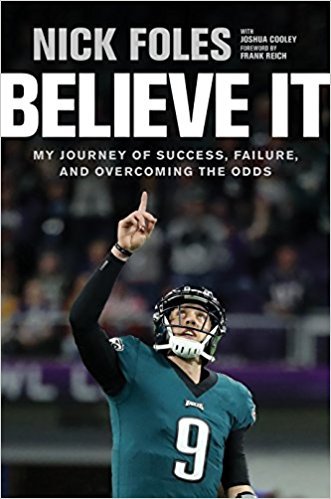Randy Alcorn's Blog, page 115
July 20, 2018
Who Is the Happiest Human Being Who Ever Lived?

Though the answer wouldn’t be obvious to unbelievers or even to most Christians, the Bible is clear on this: it’s Jesus. Psalm 45:6-7 is quoted in direct reference to the Messiah, in Hebrews 1:8-9, where the Father says of His Son: “You have loved righteousness and hated wickedness; therefore God, your God, has anointed you with the oil of gladness beyond your companions.” Most scholars think “companions,” in context, is the whole human race that Jesus became part of in His incarnation.
Notice the connection between Christ’s righteousness and His gladness, whereas in Scripture wickedness brings misery. Ironically, we often think of ourselves as fun-loving, and of God as a humorless killjoy. But we’ve got it backward. We are the dull ones, not God. Did we invent wit, humor, and laughter? No. God did. We’ll never begin to exhaust God’s sense of humor and His love for pleasure-filled joy. “You make known to me the path of life; in your presence there is fullness of joy; at your right hand are pleasures forevermore” (Psalm 16:11).
For Nanci and me, as much now as ever as she’s battling cancer, laughter is pure therapy. We were with six dear friends recently, and we ate and drank and laughed and told stories till late. I’m still smiling at the evening we enjoyed together.
We love to laugh, and there’s a lot of it with family and friends. As long as our laughter isn’t impure or demeaning, I think Christ laughs with us. On the New Earth, after the resurrection, the wit and fun-loving nature of our Lord will be our greatest source of endless laughter. I am convinced no one’s laughter will be louder and more contagious than that of Jesus.
Growing up in a faithful Jewish family, Jesus would have enjoyed many feasts and holidays, as well as the weekly Sabbath, all celebratory experiences (see chapter 33 of my book Happiness). One of the psalms that Jesus would have meditated on from His childhood says, “When the Lord brought us back to Jerusalem it was like a dream! How we laughed, how we sang for joy! . . . Indeed He did great things for us; how happy we were!”(Psalm 126:1-3, GNT).
“Be happy and shout to God who makes us strong!” (Psalm 81:1, CEV). A. W. Tozer said, “The people of God ought to be the happiest people in all the wide world!”
So thank God for laughter, and realize as long as it’s not celebrating impurity or other sin, Jesus joins in your laughter. If that’s clear in our minds, then it will counteract the stereotype of unhappy Christians, and people around us will see that the Gospel of Jesus is truly “the good news of happiness” (Isaiah 52:7, ESV).
“God will yet fill your mouth with laughter, and your lips with shouting” (Job 8:21).
Jesus said, “Blessed are you who weep now, for you shall laugh” (Luke 6:21).
“Well done, good and faithful servant…Enter into your Master’s happiness” (Matthew 25:23).
Photo by Ankush Minda on Unsplash
July 18, 2018
Clothed with Strength and Dignity: a Video Remembering Karen Coleman, and an Invitation to Give in Her Honor

Many of you read and shared your appreciation for EPM’s tribute to our staff member Karen Coleman, who went to be with Jesus in June. Thank you to those who have prayed for our staff in this time of grief, and for Randy as he prepared to speak at Karen’s memorial service. Please also keep Karen’s sons, Zac and Noah, and her daughter-in-law Hannah, in your prayers as they grieve the loss of their beloved mother and mother-in-law.
As Karen planned her service in the weeks before her death, her greatest hope was that the gospel would be clearly communicated and Jesus would be glorified. Though you may not have known Karen personally, we think you’ll be touched by hearing what was shared about her life and learning how she served Jesus with all her heart. You can watch the full video below, or just Randy’s message.
 We’d like to invite you to join us in honoring Karen by giving to fund a translation of Scripture. She and her family spent 23 years as missionaries in Cameroon involved in the Scripture translation work of the Esimbi language. We can’t think of a better way to remember her legacy than to give in her honor toward the continuation of this project. We’re partnering with The Seed Company to help fund the Esimbi project, which will bring God’s Word to 20,000 people who live in isolated areas of Karen’s beloved Cameroon. You can read more and give to this project through our donation page (choose the special project “Esimbi Translation Project”).
We’d like to invite you to join us in honoring Karen by giving to fund a translation of Scripture. She and her family spent 23 years as missionaries in Cameroon involved in the Scripture translation work of the Esimbi language. We can’t think of a better way to remember her legacy than to give in her honor toward the continuation of this project. We’re partnering with The Seed Company to help fund the Esimbi project, which will bring God’s Word to 20,000 people who live in isolated areas of Karen’s beloved Cameroon. You can read more and give to this project through our donation page (choose the special project “Esimbi Translation Project”).
Randy shared this at the end of his message:
I’m thinking of people in Cameroon who still well remember Karen, and the Coleman family, who will one day hold a Bible in their hands that’s in their own language. They’ll be reading the words of God, and they’ll remember Karen. And they’ll know that her friends came together to help provide the Word of God for them in their heart language.
July 16, 2018
The Lord Is My Rock, My Fortress, and My Deliverer: Portions from Psalm 18

Here are portions of Psalm 18 that I meditated on recently before Nanci and I met with her doctor. (You can read an update on her health, and some good news we’re grateful for, on her Caring Bridge page.) God spoke to me through these verses, and I hope they speak to you too:
I love you, Lord, my strength.
2 The Lord is my rock, my fortress and my deliverer;
my God is my rock, in whom I take refuge,
my shield[b] and the horn[c] of my salvation, my stronghold.
3 I called to the Lord, who is worthy of praise…
I cried to my God for help.
From his temple he heard my voice;
my cry came before him, into his ears.
16 He reached down from on high and took hold of me;
he drew me out of deep waters…
18 They confronted me in the day of my disaster,
but the Lord was my support.
19 He brought me out into a spacious place;
he rescued me because he delighted in me.
27 You save the humble
but bring low those whose eyes are haughty.
28 You, Lord, keep my lamp burning;
my God turns my darkness into light.
29 With your help I can advance against a troop;
with my God I can scale a wall.
30 As for God, his way is perfect:
The Lord’s word is flawless;
he shields all who take refuge in him.
31 For who is God besides the Lord?
And who is the Rock except our God?
32 It is God who arms me with strength
and keeps my way secure.
46 The Lord lives! Praise be to my Rock!
Exalted be God my Savior!...
49 Therefore I will praise you, Lord, among the nations;
I will sing the praises of your name.
Also, Nanci has loved reading Knowing God by J. I. Packer and Trusting God by Jerry Bridges, along with A. W. Tozer’s The Knowledge of the Holy. Both of us highly recommend these three books, because they center us on the person of God which is where we all need to set our minds, whether we’re facing cancer or anything else.
Photo by Samuel Ferrara on Unsplash
July 13, 2018
Believe It by Nick Foles, a Great New Book, #5 on the NYT Best Sellers List

 Of the many fine young men I’ve gotten to know through the ministry of Pro Athletes Outreach (PAO), quarterback Nick Foles stands out as one of those most serious in his Christian faith. (See my past blog on Nick and Case Keenum, as well as some of Nick’s Eagles teammates who know and love Jesus.)
Of the many fine young men I’ve gotten to know through the ministry of Pro Athletes Outreach (PAO), quarterback Nick Foles stands out as one of those most serious in his Christian faith. (See my past blog on Nick and Case Keenum, as well as some of Nick’s Eagles teammates who know and love Jesus.)
Recently Nick’s new book Believe It: My Journey of Success, Failure and Overcoming the Odds, was released. As of this Sunday it will debut at #5 on the New York Times Best Sellers list! With Josh Cooley’s able help, Nick has told his story in a unique and memorable way that can be enjoyed by avid football fans and not so avid ones. I loved this book, which has excellent stories, honesty, and life lessons from a brother in Christ who is the real deal.
 I consider Nick a good friend, and I respect but do not idolize him. (He’s pictured here with his wonderful wife Tori and their adorable daughter Lily.) Part of what I love is that he has learned great life lessons not just from his success, but his failures. He talks about both in his book.
I consider Nick a good friend, and I respect but do not idolize him. (He’s pictured here with his wonderful wife Tori and their adorable daughter Lily.) Part of what I love is that he has learned great life lessons not just from his success, but his failures. He talks about both in his book.
In addition to our exchanging a lot of texts, I’ve spent time with Nick in three locations, including our home. I’ve talked and prayed with him and each time I’ve been struck with his sincerity, humility and genuine desire to make a difference in people’s lives for the glory of God. (After retiring from the NFL he wants to become a youth pastor—Super Bowl MVP looks pretty good on a youth pastor’s resume.)
The book is well written and authentically portrays Nick’s personal priorities and heart for others, especially young people. I’ve seen how he’s interacted with my own grandsons. He has spoken into their lives on a spiritual basis, and I believe through this book he will speak powerfully into hundreds of thousands of other lives. One of the things I love in the book is how he honors his wife Tori and deals with her health struggles. They are both honest and open and don’t airbrush life’s challenges.
Here’s more about the book:
Get ready to defy the odds when everyone’s counting you out.
When the Philadelphia Eagles’ starting quarterback went down with a torn ACL in week 14 of the 2017 NFL season, many fans—and commentators—assumed the Eagles’ season was over.
Instead, Nick Foles came off the bench and, against all odds, led the Eagles to their first Super Bowl victory in history.
How did Nick get it done—winning MVP honors, silencing the critics, and shocking the world? How did the man who was on the verge of retiring just two seasons earlier stay optimistic and rally the team to an astounding win? How did he stay ready despite numerous trades and discouraging injuries, able to step up in the moment and perform at the top of his game?
Believe It offers a behind-the-scenes look at Nick’s unlikely path to the Super Bowl, the obstacles that threatened to hold him back, his rediscovery of his love for the game, and the faith that grounded him through it all. Learn from the way Nick handled the trials and tribulations that made him into the man he is today—and discover a path to your own success.
Nick and Lily’s photo after Super Bowl win and Nick was named MVP. This photo has been put in the NFL Hall of Fame, and Nick looks forward to taking Lily there to see it:

Here’s an excerpt from Nick’s book:
Everything in my life changed in the span of sixty seconds.
It was March 10, 2015, the official start of the NFL calendar. The 2014 season was already a distant memory, which was fine by me. After enjoying a record-setting second season with the Eagles in 2013, I had regressed some during my third season. My accuracy wasn’t as sharp, and my overall statistics were nowhere near my earlier Pro Bowl level. To make matters worse, I had suffered a broken collarbone in a week eight win over Houston and missed the rest of the season.
Nevertheless, I was filled with excitement heading into 2015. Despite my statistical drop-off the year before, I had led the Eagles to a 6–2 record, and we had a solid core of players returning to a 10–6 team that had barely missed the playoffs. My collarbone had fully healed, and I was feeling better than ever. Hope abounded.
That morning I headed to Equinox, my off-season gym in Irvine, California, to play some basketball and work out. I had been a decent high school basketball player in Texas, and it was always nice to dust off those skills between NFL campaigns. I felt fluid and sharp as I played a little pickup and a couple of rounds of H-O-R-S-E with some gym buddies. Steph Curry’s roster spot was by no means in jeopardy, but I was nailing some pretty crazy half-court shots. Everything was clicking. Eventually, the weight room beckoned. The earbuds went in, the country music went on, and the volume went up. (You can take the country boy out of Texas, but you can’t take Texas out of the country boy.)
I was in the middle of a set of leg presses when my phone rang. Typically I don’t answer my phone during workouts, but the caller ID read Chip Kelly, and when your head coach calls, you answer.
The regular season had been over for ten weeks. My last conversation with Chip had been our exit meeting in early January before I left for the off-season. I assumed he wanted to check on my collarbone and my overall progress—maybe even discuss his roster-building plans.
Boy, was I wrong.
The call started out benignly enough. “Hey, Chip. What’s up?”
“Hey, Nick. How are you feeling?”
“I feel great. I’m in the best shape of my life.” And I meant it. “I’m really excited about this season and this team.”
Chip told me he was happy to hear that, and then he talked a little about how the team was building for the future. Then, out of nowhere, came the fifty-foot swell.
“Nick, I’m actually calling to tell you that we’ve traded you to the St. Louis Rams for Sam Bradford. I wanted to be the one to let you know. Thanks for all you’ve done for this organization and for me personally. I wish you the best of luck.”
Chip’s tone was steady and measured—almost Belichickian—a stark contrast to what I was feeling. I stood up, faced the window, and blinked, unable to find words.
I’d loved playing in Chip’s rapid-fire offense. We had so many dynamic weapons on the team—Riley Cooper, Zach Ertz, Jeremy Maclin, Jordan Matthews, LeSean McCoy, Darren Sproles. Besides, my wife, Tori, and I had quickly grown to love the city of Philadelphia, and we were excited about diving into community work there. We wanted to plant deep roots.
Now those dreams were being dashed in a matter of seconds. I was flabbergasted. What was I supposed to say? Like Barry Sanders in the open field, eloquent words escaped me.
“Well,” I stammered, “thanks for the call. Obviously, I want to be in Philly, but I understand.”
Did I?
With all the graciousness I could muster, I said, “I’m truly grateful for my time with the Eagles. I wish you the best.”
Chip informed me that I’d be getting a call from Rams head coach Jeff Fisher soon. Then we hung up.
I looked at my phone. The call had lasted exactly one minute. I stood frozen at the leg-press station, my body numb. Off-season trades are commonplace in the NFL, but you never think it’s going to be you.
What just happened?
One moment I was planning my future as the franchise quarterback for the Eagles. The next, my world was like a merry-go-round flying off its axis.
Sure enough, Jeff Fisher called a minute later to welcome me to the Rams. I tried to sound enthusiastic, but honestly I was faking it.
After we wrapped up the call, I ditched the rest of my workout. Whatever motivation I’d had that morning had evaporated. I called home and broke the news to Tori; then I called my dad.
The next day I flew to St. Louis to meet my new coaches, undergo a physical, and hold a press conference.
For the first time, I started to grasp a harsh reality: the NFL was a business, and I was an expendable commodity.
Everything I’d been working toward in Philadelphia had suddenly been stripped away.
None of this was part of my plan.
Read a longer excerpt here. Also, make sure you check out this interview with Nick on Sports Spectrum, one of my favorite sites. Nick shares his reason for writing a book, how close he was to retiring from the NFL, cultivating a culture of faith in the locker room, going from MVP to backup, and why he doesn’t want to be called a “starting quarterback.” And here’s an article about Nick’s wife Tori, and her struggle with POTS, a little-known disorder.
Here’s how Nick Foles won over my wife Nanci: if you love our dog Maggie, and love our grandsons (three not present, but Ty and Jake are in the photo), then you’re family!


July 11, 2018
Will Our Bodies Shine in Heaven?

Some people have asked me if our resurrected bodies will shine. They cite two passages: “The righteous will shine like the sun in the kingdom of their Father” (Matthew 13:43) and “Those who have insight will shine brightly like the brightness of the expanse of heaven, and those who lead the many to righteousness, like the stars forever and ever” (Daniel 12:3, NASB).
On the one hand, Jesus didn’t have a halo after His resurrection, and there’s no reason to believe we will either. Christ’s body appeared so earthly and normal that the disciples on the road to Emmaus didn’t notice He was the resurrected Lord (Luke 24:13-24). However, at this point He was not yet glorified.
During Christ’s transfiguration, His clothing “became as bright as a flash of lightning” (Luke 9:29). Since this portrays Christ as King, it makes sense to think He will literally shine in His kingdom on the New Earth. John says of the city, “the Lamb is its lamp” (Revelation 22:23). As noted earlier, John saw Christ in the present Heaven as a powerful shining being, not someone who would blend into a crowd (Revelation 1:12-18). Moses and Elijah, who joined Christ on the mountain, “appeared in glorious splendor” (Luke 9:31). After Moses received the Ten Commandments from God on the mountain, Moses’ face shone (Exodus 34:29-30).
Many believe these descriptors are figures of speech. Yet in some cases (including Moses’) it was clearly literal. Since God Himself is consistently portrayed as existing in brilliant light, it shouldn’t surprise us to think that in His presence we too will partake of His brightness. I believe that as resurrected beings, we will indeed bear this physical evidence of being God’s image bearers and living in God’s presence. To be glorified appears to mean that, among other things, we may literally shine.
If this seems hard to imagine, think of a person with drab, grayish, malnourished skin, and then imagine the same person as vibrant and healthy. Couldn’t you say the person shines? Have you heard it said of someone “she’s radiant”? I’ve met people so full of Jesus that they seem to have a physical brightness. If God Himself is bright, then it seems appropriate that we, His image-bearers, will reflect His brightness.
Now, moving beyond that weak analogy of our present condition, imagine people in the very presence of God, who are so righteous, so beautiful, so devoid of sin and darkness, so permeated by the very righteousness of God, that they have a literal physical radiance. That’s not so hard to imagine, is it?
Shining speaks of glory, the outward display of greatness and majesty. Glory is a word associated with rulers. Kings had glory. We understandably hesitate to attribute glory to ourselves, but God doesn’t hesitate to ascribe glory to us. As God’s children we should bear His likeness. It’s He, not we, who declares that we are royalty—kings and queens who will reign with Christ.
A. B. Caneday reminds us, “God is the original; we are the organic image, the living copy. We do not rightly speak of God as King by projecting onto him regal imagery because we think it is fitting for God. Rather, bowing before God who has dominion is proper, for man as king over creation, is the image of kingship; God, the true king, is the reality that casts the image of the earthly king.” [1]
Hence, our glory as lesser kings and queens will serve to magnify His greater glory as the King of kings. We won’t absorb and keep the glory given us, but we will reflect it and emanate it toward its proper object: Christ Himself. This is evident in the fact that God’s worshiping children will “lay their crowns before the throne” (Revelation 4:10).
What prepares us to participate in God’s glory? Our current sufferings (Romans 8:17-18; 1 Peter 5:1-4). “For our light and momentary troubles are achieving for us an eternal glory that far outweighs them all” (2 Corinthians 4:17). Provided we draw our strength from Christ, the greater our troubles now, the greater our glory then.
For more on the eternal life that awaits us, see Randy’s book Heaven. You can also browse additional books and resources on Heaven available from EPM.
[1] A. B. Caneday, “Veiled Glory,” in John Piper, Justin Taylor, and Paul Kjoss Helseth, Beyond the Bounds (Wheaton, Ill.: Crossway, 2003), 163.
Photo by Julia Caesar on Unsplash
July 9, 2018
Get into God’s Word with The Bible Project

One of the best things to come out of Portland, Oregon (where I live) in the last few years is The Bible Project, which is done by a couple of creative brothers here that know God and His Word. Nanci and I often watch one of their 5 to 10 minute videos at dinner, and our discussion takes off from there.
Here are a few examples:
Genesis 1-11 (8 minutes)
The Gospel of the Kingdom (6 minutes)
The Image of God (6 minutes)
There are many more, with new ones coming all the time. Check out their site and choose the category that interests you. Watching them is a fun and memorable way to learn God’s Word!
July 6, 2018
Do the Poor Have a Way to Store Up Treasures in Heaven, or Will They Continue to Be Poor in Eternity?

This question was answered a few months ago by Karen Coleman, an EPM staff member now with Jesus. I appreciate her response. As I shared in our tribute to Karen, she is truly one of my heroes. —Randy Alcorn
Question from reader:
I’m reading Managing God's Money and my question is related to storing up treasures in Heaven. I’m an American and compared to the rest of the world, I’m very, very rich. However, if I were dirt poor and reading your book, wouldn’t it be discouraging, since I’d have no way to accumulate heavenly treasures? If some Christians have the ability to store up treasures and others don’t, will some believers have 10,000 square foot houses in Heaven and others have cardboard boxes in the ghetto? This makes it seem like there will continue to be haves and have-nots in eternity.
Answer from Karen Coleman:
Randy wrote: “Studying Zacchaeus, the rich young ruler, the poor widow, and other Bible characters reveals that how we handle money is an accurate index of our spiritual lives. This is true of all people in all ages [emphasis added]. But it’s particularly true for most readers of this book, since we live in a place and time when what our government calls the ‘poverty level’ far exceeds the average standard of living of nearly every other society in human history, past and present.”
So although the target audience for Randy’s books about money and giving is usually those far above the U.S. poverty line, God has never excluded the poor of the world from earning eternal rewards in other ways.
Randy cites Ephesians 2:10, which says, “For we are his workmanship, created in Christ Jesus for good works, which God prepared beforehand, that we should walk in them.” God has prepared a lifetime of good works for us to do. According to Jesus, “even a cup of cold water to one of these little ones” (Matthew 10:42) will gain God’s reward.
Randy explains in The Treasure Principle that it is not only financial giving we are rewarded for. “God will also give us eternal rewards for doing good works (Ephesians 6:8; Romans 2:6, 10), persevering under persecution (Luke 6:22–23), showing compassion to the needy (Luke 14:13–14), and treating our enemies kindly (Luke 6:35).” Rich and poor alike are able to participate in these things.
Randy says this in Managing God’s Money:
What does it mean to give beyond our ability? It means to push our giving past the point where the figures add up. It means to give away not just the luxuries but also some of the necessities. It means living with the faith of the poor widow Jesus commended to his disciples (Mark 12:41‑44).
The Macedonian Christians were dirt poor [emphasis added], yet when they heard of needy people in Jerusalem, “they gave according to their means . . . and beyond their means, of their own accord, begging us earnestly for the favor of taking part in the relief of the saints” (2 Corinthians 8:3‑4, ESV). When told they were too poor to give, they begged for the privilege of helping out! For most of us, giving according to our means would stretch us. Giving beyond our means would stretch us or even appear to break us. But it won’t—because we know God is faithful.
So we see it is possible for very poor people to give financially, and they will surely be rewarded for it.
In the context of encouraging believers towards great generosity, Paul spoke these words to the church in Corinth: “For you know the grace of our Lord Jesus Christ, that though He was rich, yet for your sake He became poor, so that you through His poverty might become rich” (2 Corinthians, 8:9). Jesus went from riches to rags to make His people rich. Since Jesus never promised the eradication of poverty on Earth, surely every aspect of this richness will have its perfect fulfillment in Heaven. I think it’s safe to say there will be no ghettoes on the New Earth.
To understand the differences that will exist in Heaven, Randy explains it this way:
Because God promises to reward people differently according to their differing levels of faithfulness in this life, we should not expect equality of possessions and positions in Heaven… Scripture is clear that we’ll have different rewards and positions in Heaven, according to our faithful service in this life. Since everyone will be happy, what could be the nature of these differences? Jonathan Edwards said, “The saints are like so many vessels of different sizes cast into a sea of happiness where every vessel is full: this is eternal life, for a man ever to have his capacity filled. But after all ’tis left to God’s sovereign pleasure, ’tis his prerogative to determine the largeness of the vessel.” …A pint jar and a quart jar can both be full, but the larger jar contains more. Likewise, in Heaven all of us will be full of joy, but some may have a larger capacity for joy, having been stretched through their dependence on God in this life. John Bunyan said it well: “He who is most in the bosom of God, and who so acts for him here, he is the man who will be best able to enjoy most of God in the kingdom of heaven.”
Jesus did not fault people for being rich. He did fault them for idolizing those riches to the neglect of the important things. A poor person could have a heart just like the rich ruler (Matthew 19:16-30) and love what little he has more than he loves Christ, thus losing out on his reward. Ultimately it’s a heart matter.
We have the picture of our generous Heavenly Father in Matthew 20:1-16. The vineyard owner had his own way of paying back his workers which did not make sense or seem fair to all of them. God is the one who places the value on what we do. He sees and knows our hearts. In His infinite justice, He will not penalize in Heaven those who were poor on this earth because they gave less money to God’s work than those who were rich in this life. Many things in God’s economy appear upside down to our eyes!
For some additional thoughts, check out these resources:
Does Giving Time or Goods Instead of Money Earn the Same Eternal Reward?
Can We Really Earn Eternal Rewards?
How can we store up treasures in heaven? (from Gotquestions.org)
I hope these things are helpful to you. May God bless you as you continue to study His Word.
Photo by Hermes Rivera on Unsplash
July 4, 2018
When It Comes to Knowing God, Are You a Traveler or Just an Observer?

On my bike rides I’ve been listening to the wonderful audio version of a book that deeply affected me when I was a young teenage Christian in the 1970s. It’s J. I. Packer’s classic, Knowing God. (As a printed book or an audio to listen to as you drive or work out, this book is gold.) In an early chapter Packer says this:
In A Preface to Christian Theology, John Mackay illustrated two kinds of interest in Christian things by picturing persons sitting on the high front balcony of a Spanish house watching travelers go by on the road below. The “balconeers” can overhear the travelers’ talk and chat with them; they may comment critically on the way that the travelers walk; or they may discuss questions about the road, how it can exist at all or lead anywhere, what might be seen from different points along it, and so forth; but they are onlookers, and their problems are theoretical only. The travelers, by contrast, face problems which, though they have their theoretical angle, are essentially practical—problems of the “which-way-to-go” and “how-to-make-it” type, problems which call not merely for comprehension but for decision and action too.
Balconeers and travelers may think over the same area, yet their problems differ. Thus (for instance) in relation to evil, the balconeer’s problem is to find a theoretical explanation of how evil can consist with God’s sovereignty and goodness, but the traveler’s problem is how to master evil and bring good out of it. Or again, in relation to sin, the balconeer asks whether racial sinfulness and personal perversity are really credible, while the traveler, knowing sin from within, asks what hope there is of deliverance. Or take the problem of the Godhead; while the balconeer is asking how one God can conceivably be three, what sort of unity three could have, and how three who make one can be persons, the traveler wants to know how to show proper honor, love and trust towards the three Persons who are now together at work to bring him out of sin to glory. And so we might go on.
Now this is a book for travelers, and it is with travelers’ questions that it deals.
Photo by Fidel Fernando on Unsplash
July 2, 2018
John Piper on Your Greatest Reason Not to Worry

Here’s an amazing truth: “Cast all your anxiety on him because he cares for you” (1 Peter 5:7). God, the Creator of the universe and fountainhead of all marvels, cares for you? Think about that for a few million years.
The Lord does not call us merely to release our anxiety to Him, but to willingly cast it upon Him—and not some of it, but all of it. God wants us to trust Him in both the big things and the little things. Worry is momentary atheism crying out for correction by trust in a good and sovereign God.
In this three-minute video, John Piper talks about why the phrase “Our Father in Heaven” in Scripture contains our greatest reason not to worry:
June 29, 2018
Help Us Fund a Translation of Scripture, in Honor of Our Coworker Karen Coleman

On June 10, our beloved coworker and dear friend Karen Coleman went to be with Jesus. Prior to working at EPM, she and her family spent 23 years as missionaries in Africa. Her missionary heart never changed and her greatest desire was for people to know Jesus as their Savior. Even during her final weeks, she was handing out booklets and gospel tracts to those she met in the hospital and later to her hospice workers. She also passionately loved God’s Word, and had several opportunities to speak at the women’s Bible Study at her church.
We can’t think of a better way to remember Karen’s legacy than to give in her honor towards the translation of Scripture. We were so happy that she learned of our idea just before she died and was able to respond with a smile and nod! So we’re partnering with The Seed Company to help fund the Esimbi project, which will bring God’s Word to 20,000 people who live in isolated areas in Karen’s beloved Cameroon.
True Christians among the Esimbi are few; most follow African traditional religion. Churchgoers hesitate to disturb a God who they believe is far away. Having God’s Word in their mother tongue will draw them to their loving Father. The current goals for this project include translating Genesis 1-24. They will also have a consultant check and test 12 previously drafted books. In addition, the team will print Mark and Luke and digitally publish Acts and Hebrews.
Although translation efforts aren’t projected to be finished until 2023, we have a short-term goal of raising $120,000 by September 30, 2020. Would you partner with us to help the Esimbi people have God’s Word in their own language? If you’d like to donate, please select the fund “Esimbi Translation Project” on our donation page or send a check to Eternal Perspective Ministries, 39085 Pioneer Blvd., Suite 206, Sandy, OR 97055, marked with “Esimbi translation” in the memo line. 100% of donations will go directly to The Seed Company.
So faith comes from hearing, and hearing through the word of Christ. (Romans 10:17)
And through [Abel’s] faith, though he died, he still speaks. (Hebrews 11:4)

Esimbi people who need the Scriptures in their heart language



